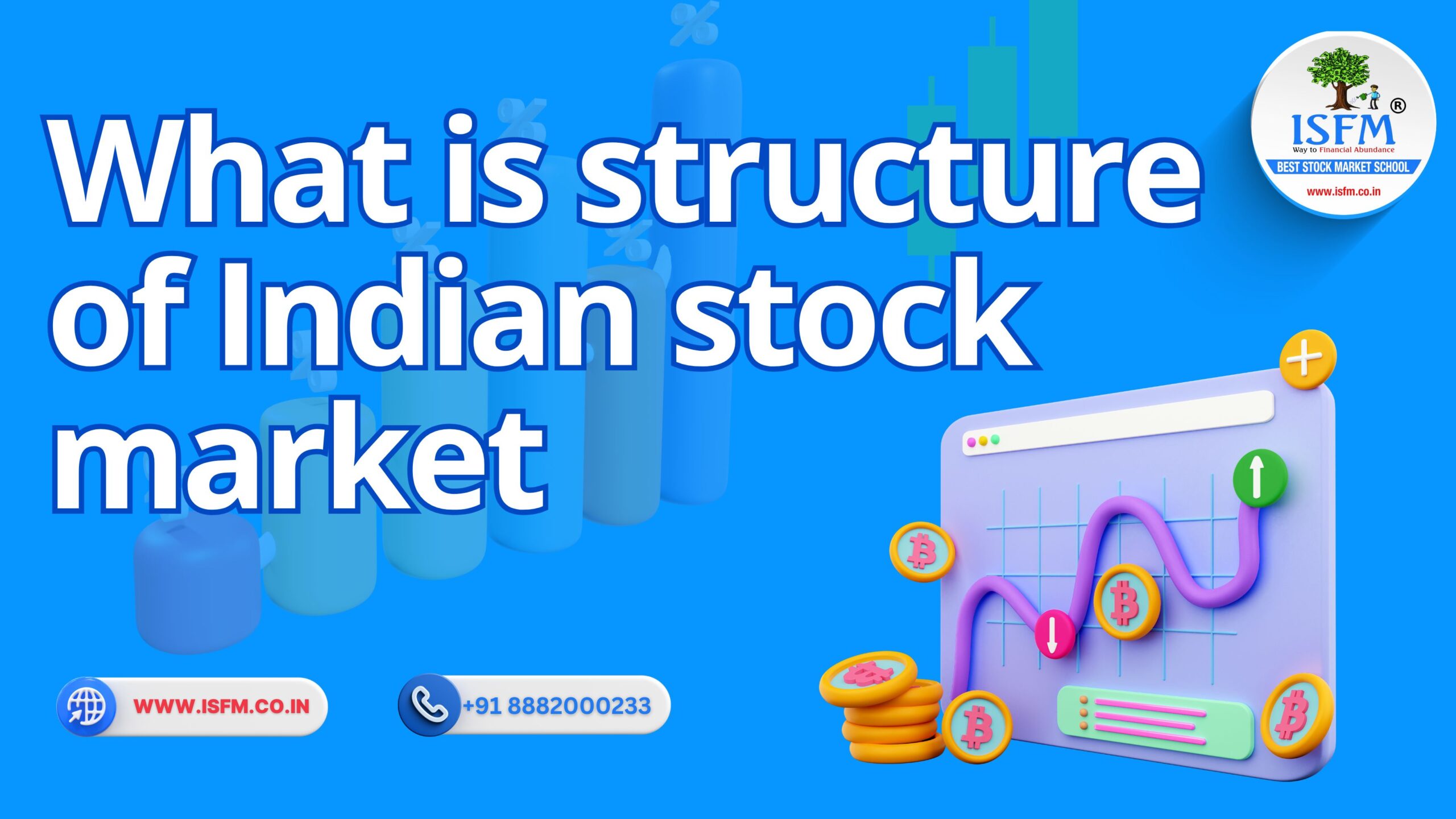Structure of the Indian Stock Market: Features, Significance & Distinctive Attributes

The Indian stock market is a vibrant and evolving ecosystem, acting as a catalyst for economic development, wealth creation, and foreign capital inflow. To navigate this landscape effectively, it’s crucial to understand its structure, core components, and the factors that set it apart from global markets.
Understanding the Structure of the Indian Stock Market
India’s stock market operates within a well-regulated and organized framework. It consists of multiple entities working in harmony—stock exchanges, regulators, market participants, and technological infrastructure.
1. Major Stock Exchanges
- Bombay Stock Exchange (BSE): Established in 1875, BSE is Asia’s oldest exchange. It lists over 5,000 companies and is known for the Sensex, a 30-stock benchmark index.
- National Stock Exchange (NSE): Founded in 1992, NSE revolutionized Indian trading by introducing electronic systems. Its flagship index is the Nifty 50.
2. Regulatory Authority
- Securities and Exchange Board of India (SEBI): As the market watchdog, SEBI ensures transparency, protects investors, and enforces regulations across trading platforms.
3. Market Segments
- Primary Market: Where companies issue shares via IPOs.
- Secondary Market: Where listed securities are traded by investors.
- Derivatives Market: Involves trading in futures and options.
- Commodity Market: Exchanges like MCX handle commodities trading.
4. Depositories
5. Intermediaries
These include stock brokers, mutual funds, depository participants, and registrars—each playing a crucial role in market operations.
Salient Features of the Indian Stock Market
- High Liquidity: BSE and NSE rank among the world’s most active exchanges, ensuring rapid order execution.
- Retail Investor Boom: Over 8.5 crore retail investors joined post-2020, thanks to low-cost brokers like Zerodha and Upstox.
- Advanced Technology: India pioneered screen-based trading and leads in areas like algorithmic trading and UPI-based settlements.
- Diverse Instruments: Investors can choose from equities, ETFs, REITs, Sovereign Gold Bonds, and SIPs.
- Strict Regulation: SEBI’s surveillance curbs malpractices, ensuring a level playing field.
Importance of the Indian Stock Market
- Capital Mobilization: Companies raise capital efficiently through public offerings, fostering economic progress.
- Economic Indicator: Indices like Nifty and Sensex act as real-time indicators of India’s macroeconomic performance.
- Wealth Generation: Historically, equities in India have delivered ~14% CAGR over two decades—outperforming gold and real estate.
- Corporate Transparency: Regulatory norms have enhanced governance and investor confidence.
- Global Connectivity: Foreign Portfolio Investors (FPIs) hold about 20% of market capitalization, indicating global trust in Indian equities.
Also Read: Top 5 Regulatory Bodies of the Indian Financial Market: Roles, Impact & Future Vision
What Sets the Indian Stock Market Apart?
- Retail-Focused Participation: Unlike the West, Indian markets witness nearly 45% participation from retail investors in cash markets.
- Tradition Meets Tech: From age-old practices at Dalal Street to modern AI-based investing platforms, India blends legacy with innovation.
- Explosive Digital Growth: Over 12.9 crore demat accounts as of 2023—powered by Aadhaar, UPI, and fintech apps.
- Platforms for SMEs: BSE SME and NSE Emerge allow startups and small businesses to raise capital easily.
- Cultural Investing Trends: Unique factors like Diwali-based buying, astrology-driven decisions, and sentiment-based trading are observed in India.
Challenges & Future Outlook
While the Indian stock market faces issues like volatility and lack of financial awareness, efforts from SEBI, educational initiatives, and fintech startups are closing the gap.
With a market cap of $4.3 trillion (2023), India is poised to hit $10 trillion by 2030—paving the way for its stock market to become a global financial hub.
Frequently Asked Questions (FAQs)
Q1: How does SEBI protect investors?
SEBI enforces transparency, regulates market participants, and handles complaints through its redressal system, SCORES.
Q2: What’s the key difference between BSE and NSE?
BSE has a larger number of listed companies, while NSE leads in volumes, especially in derivatives trading and technology adoption.
Q3: Can foreigners invest in Indian equities?
Yes, via Foreign Portfolio Investments (FPI) or India-focused ETFs like iShares MSCI India.
Conclusion
India’s stock market is not only well-structured and highly regulated but also uniquely characterized by tech adoption, retail participation, and cultural nuances. For investors—both domestic and global—understanding this market means unlocking vast opportunities in one of the world’s fastest-growing economies.


